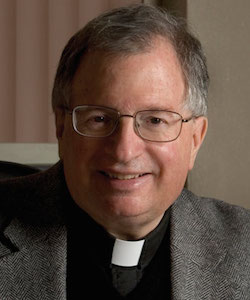
Development Challenges and Global Governance: The Long View
Joel Hellman | September 11, 2015
Responding To: SFS Dean Inaugurates Georgetown's Discussion of Global Governance
Fr. Kevin O'Brien
Dr. Hellman is right on the mark when he asserts that Georgetown has a distinctive advantage in developing long-term, innovative solutions to today’s pressing challenges: the world-wide Jesuit network. Here’s why:
From their beginning in 1540, the Jesuits distinguished themselves by the universal scope of their work. They were not defined by one ministry, but committed themselves to any work that would serve, in their words, the greater glory of God and the common good. Note here the marriage of the sacred and secular, which in the Jesuit world-view are really two sides of the same coin. To serve humanity is a holy endeavor.
Moreover, unlike other religious orders dedicated to serving in one place, the Jesuits imagined their home as the road, going wherever the needs of the Church and the world were not being met. In the decades after their founding, Jesuits worked throughout Europe, and in India, Japan, China, South America and Africa. In 1634, they reached the shores of the Maryland colony. When they landed in a new place, they often set up a school. By 1600, the schools were regularized with a plan of studies and common practices. Discoveries in distant lands were shared with schools back in Europe. Wherever situated, the schools had a very practical end: to educate good people who will do good things in the world – or in today’s Jesuit parlance, “forming men and woman for others,” and “educating for justice.”
At present, there are about 200 institutions of higher learning associated with the Jesuits in every corner of the world and every imaginable socio-economic, cultural, and religious context. At a meeting in 2010 with representatives from many of these schools, including Georgetown, the Superior General of the Jesuits, Adolfo Nicolas, posed the provocative question: “Can we not go beyond the loose family relationships we now have as institutions, and re-imagine and re-organize ourselves so that, in this globalized world, we can more effectively realize the universality which has always been part of Ignatius’ vision of the Society?” He further asked, “If each university, working by itself as a proyecto social [social project], is able to accomplish so much good in society, how much more can we increase the scope of our service to the world if all the Jesuit institutions of higher education become, as it were, a single global proyecto social”? Nicolas challenged Jesuit institutions – now mostly staffed by laypersons – to go beyond mere networking and explore deeper ways to collaborate, including sharing knowledge, faculty, and libraries.
Dr. Hellman wisely names the Jesuit Refugee Service as a partner in our work at Georgetown and an example of universalizing the good we seek. JRS, founded in 1980, serves, accompanies, and advocates for migrants and refugees in trouble spots around the world and in detention centers in the U.S. and on the border. As just one of its projects, JRS partners with Jesuit universities in offering higher education in refugee camps and urban centers.
In the end, the Jesuit network is a two-way street. Through deep connections with the Jesuit network of schools and organizations like JRS, Georgetown can help those on the peripheries of society, especially the poor and displaced. While offering resources related to research, teaching, and service to meet pressing needs, Georgetown also benefits from those connections. We appreciate the depth of the human spirit and the dignity of those in marginalized situations who devise solutions to the problems they face. Such relationships also free us from arrogant self-preoccupations and temptations to go it alone, and they expand our minds and our hearts to experience the joy that comes with friendships that cross all sorts of differences. In this way, we create a new center of solidarity where there was once a periphery.
Fr. Kevin O'Brien, S.J., is the vice president for mission and ministry at Georgetown University.

Joel Hellman | September 11, 2015

Desha Girod | September 10, 2015

Drew Christiansen | September 10, 2015

Emmanuel Foro | September 10, 2015

Erwin Tiongson | September 10, 2015

François Pazisnewende Kaboré | September 10, 2015
James Vreeland | September 10, 2015

Justin Rattey | September 10, 2015

Katherine Marshall | September 10, 2015

Marc Busch | September 10, 2015

Marion Abboud | September 10, 2015

Patrice Ndayisenga | September 10, 2015

Tobias Vestner | September 10, 2015

Shareen Joshi | September 9, 2015